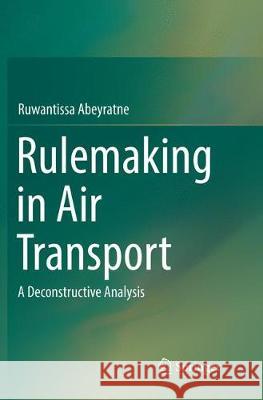Rulemaking in Air Transport: A Deconstructive Analysis » książka
topmenu
Rulemaking in Air Transport: A Deconstructive Analysis
ISBN-13: 9783319831060 / Angielski / Miękka / 2018 / 252 str.
Rulemaking in Air Transport: A Deconstructive Analysis
ISBN-13: 9783319831060 / Angielski / Miękka / 2018 / 252 str.
cena 465,84 zł
(netto: 443,66 VAT: 5%)
Najniższa cena z 30 dni: 462,63 zł
(netto: 443,66 VAT: 5%)
Najniższa cena z 30 dni: 462,63 zł
Termin realizacji zamówienia:
ok. 20 dni roboczych.
ok. 20 dni roboczych.
Darmowa dostawa!
Kategorie:
Kategorie BISAC:
Wydawca:
Springer
Język:
Angielski
ISBN-13:
9783319831060
Rok wydania:
2018
Wydanie:
Softcover Repri
Ilość stron:
252
Waga:
0.37 kg
Wymiary:
23.39 x 15.6 x 1.4
Oprawa:
Miękka
Wolumenów:
01
Dodatkowe informacje:
Wydanie ilustrowane











